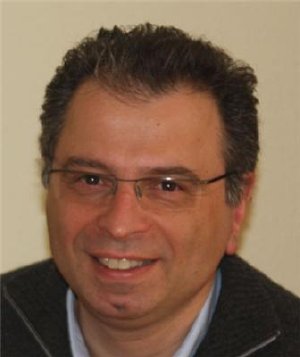Feb 4 2010
Diverse soft and gooey materials, both natural and man-made, are increasingly being understood due to the work of scientists in Europe and beyond. Wet paint, mayonnaise and shaving foam are some examples that you might encounter today.
 Christos N. Likos
Christos N. Likos
Curiously they share underlying features. The characteristics of these, not-quite-solid materials depend much less on the choice of molecules and much more on the way that the molecules are organized. COMPLOIDS will focus on adding complexity to colloids. By integrating the experimental, computational and theoretical research programs of the member groups, the network will advance the state-of-the-art of colloidal science via the training of a cohort of graduate students and junior researchers.
COMPLOIDS will tackle major challenges in colloidal science, many of which revolve around making the colloidal particles spontaneously assemble into a desired structure which could be a necklace or a network, a membrane, or a crystal of some special symmetry. To achieve this, the interaction among the colloids must be carefully controlled, say by decorating the colloids with DNA, by putting them in an electric or magnetic field, by suspending them in a liquid crystal or an oil-water-type mixture, or by using rodlike or disklike particles rather than spheres. No less important for self-assembly is the understanding of the dynamics and ageing of colloidal dispersions. The expected results of the COMPLOIDS research projects will include knowledge, methods, and strategies needed for the manufacture of novel functional materials based on colloids. Examples for applications of the planned research range from advances in oil-recovery techniques to the development of a new generation of tyres.
COMPLOIDS – international network
COMPLOIDS is coordinated by Professor Christos N. Likos, University of Vienna, and comprises an EU-wide team made up of the University of Edinburgh, University of Cambridge (United Kingdom), Technische Universität Wien as well as Universität Wien (Austria), Universität Stuttgart (Germany), Università di Roma La Sapienza (Italy), University of Bordeaux - CNRS Paul Pascal (France), FORTH (Greece), Univerza v Ljubljani and Institut Jožef Stefan (Slovenia). Industrial participation is led by Rhodia’s Laboratoire de Futur (France) and Schlumberger Cambridge Research (United Kingdom). The network is supported by several associated partners at University of Pennsylvania, New York University, Princeton University (United States of America), Université Paris-Sud XI, Université Pierre et Marie Curie (France), and Universitat de Barcelona (Spain).
With their scientific expertise and world class facilities, each partner institution will provide a stimulating research environment and cutting-edge education for the students and postdoctoral associates involved who will represent the true strength of COMPLOIDS. Major network events will bring students together: week long hands-on courses and the summer school to be organized in 2011. These will be open to non-COMPLOIDS participants which reflect the commitment of the network to serve the global research community. The training activities organized within the network will create a generation of scientists with comprehensive skills in this key field. Courses will also cover important issues in the world of work: intellectual property, scientific writing and project management.
More information: http://www.itn-comploids.eu/